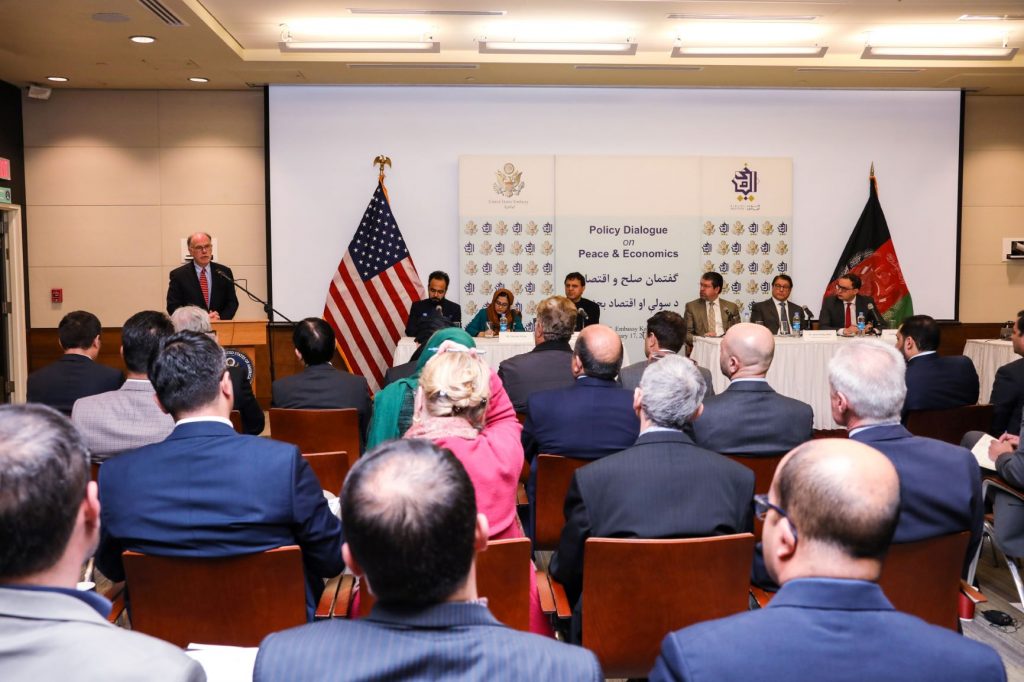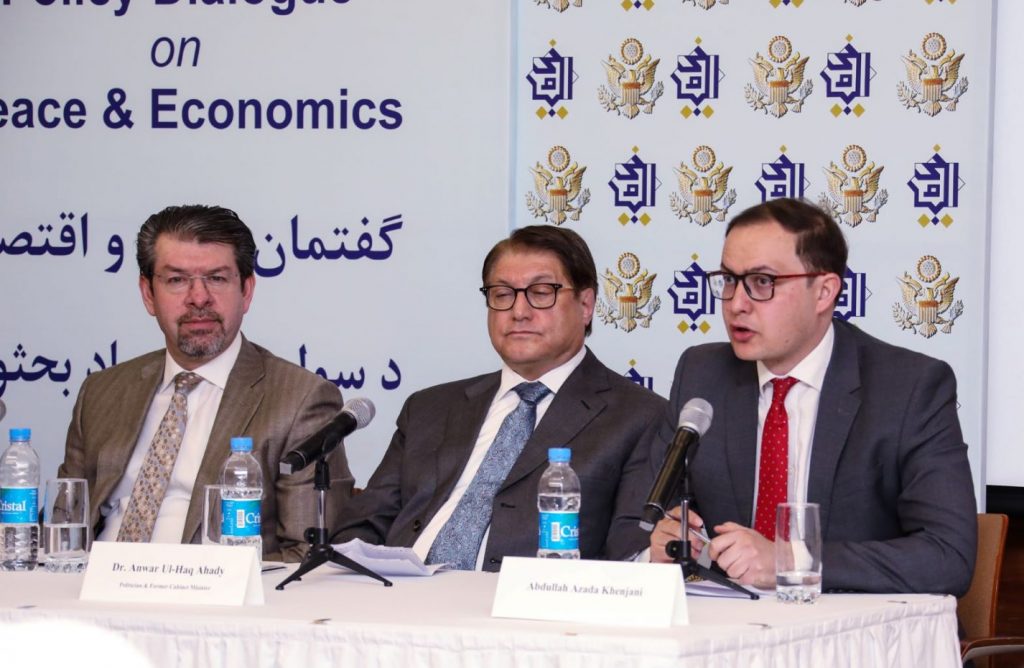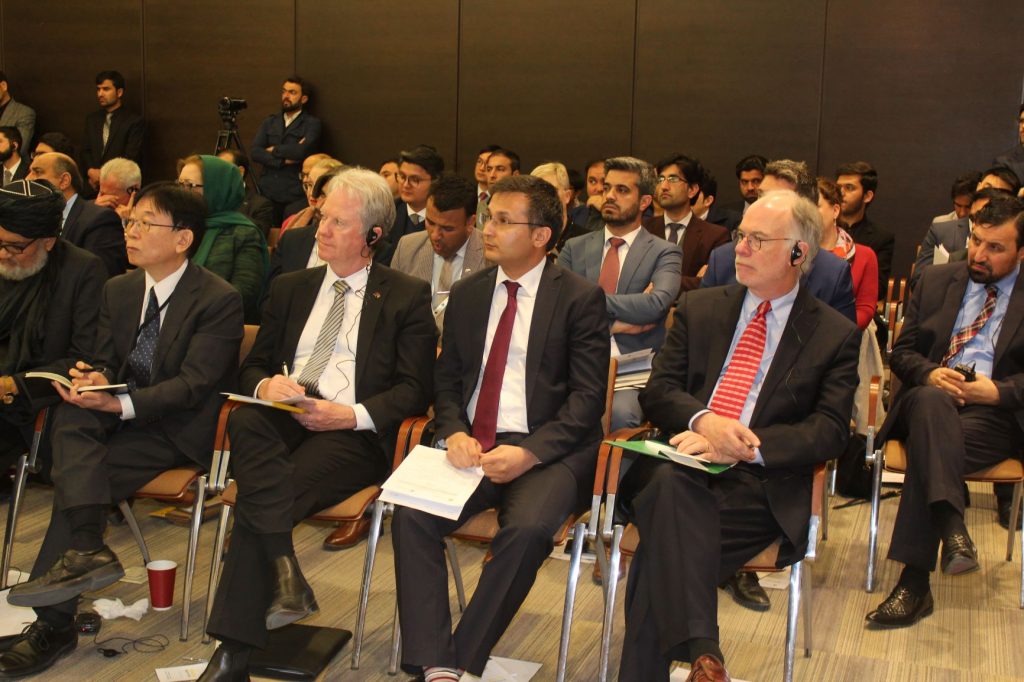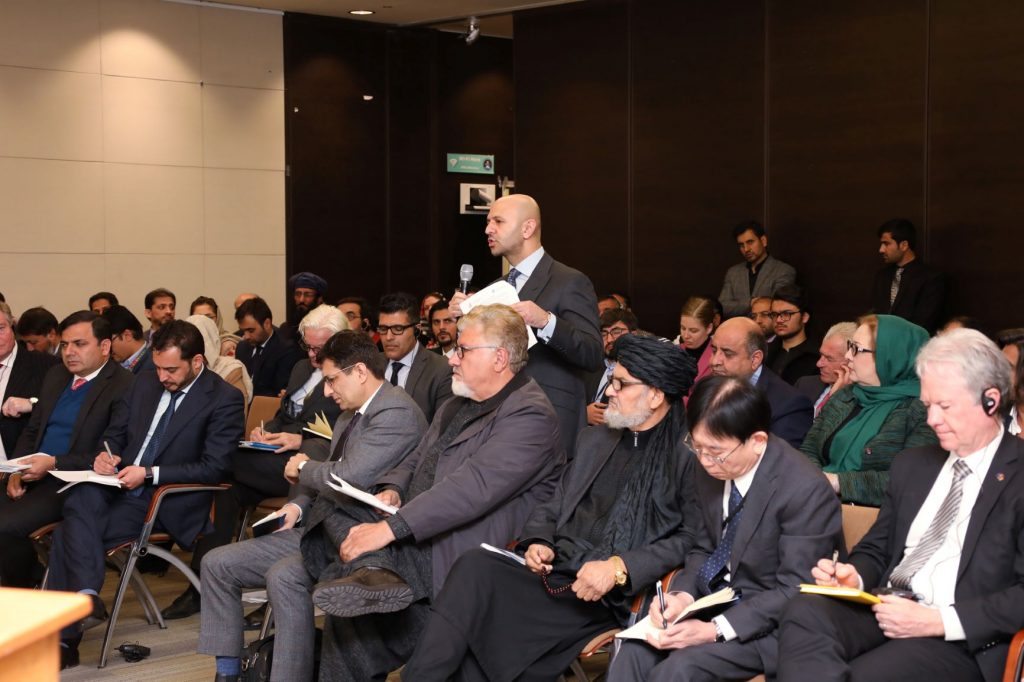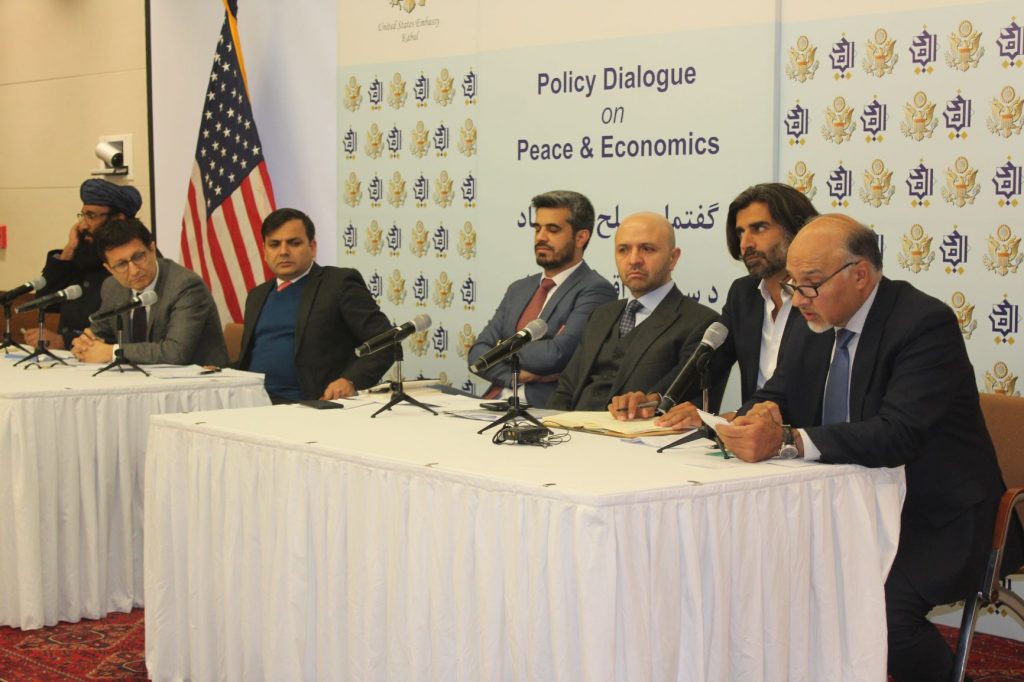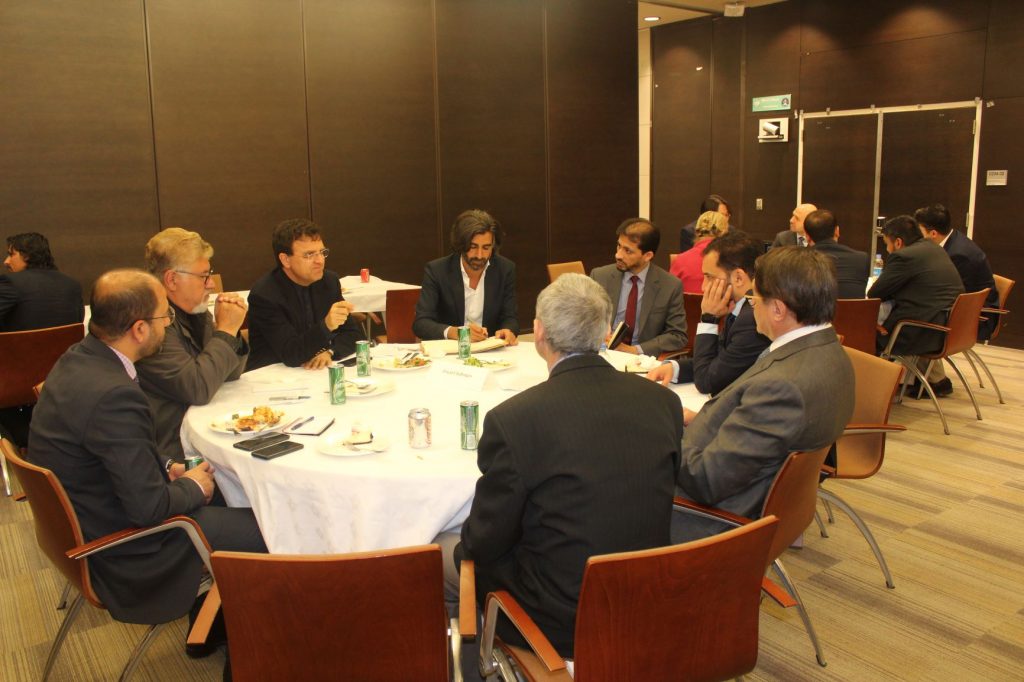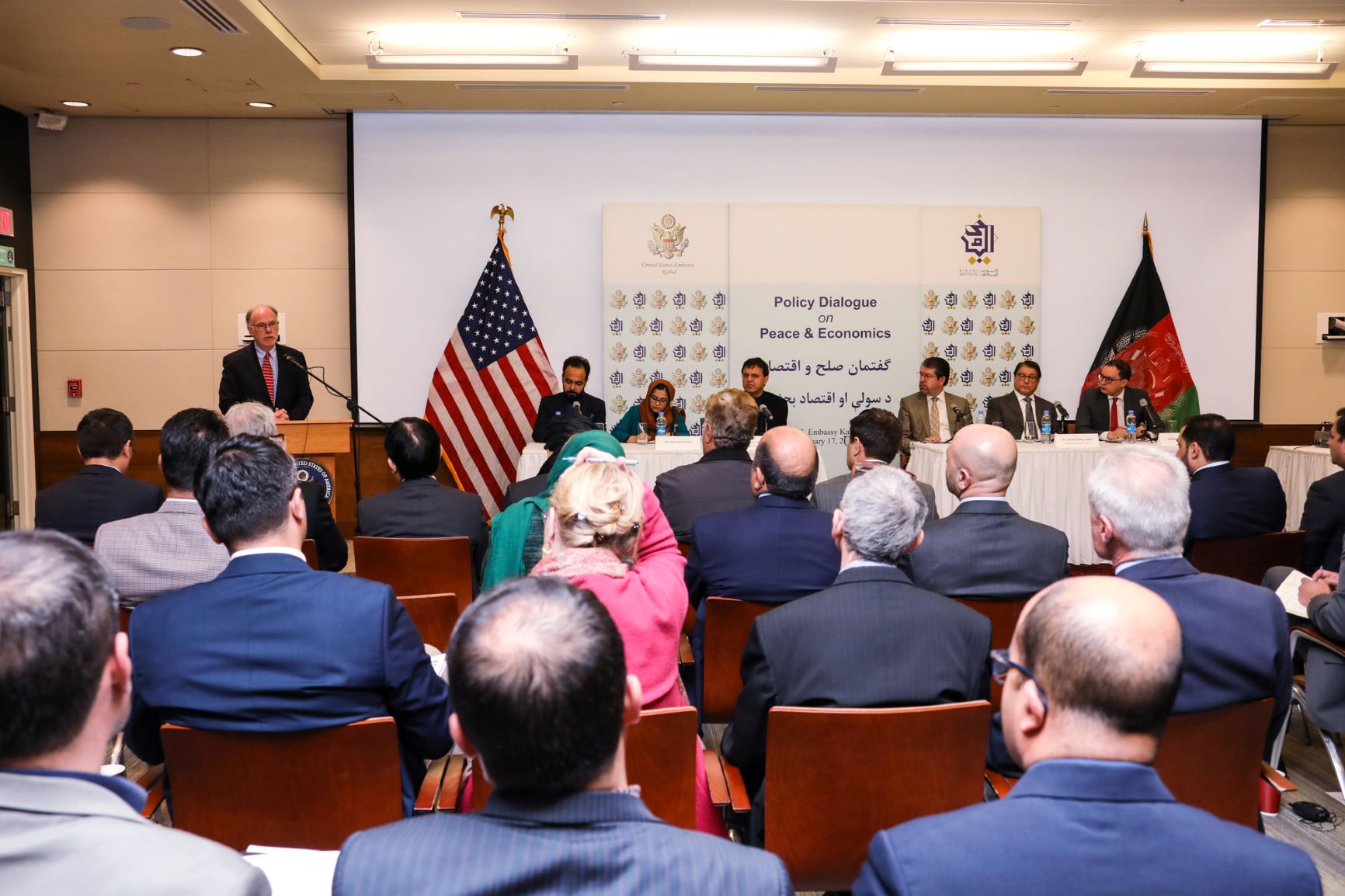Biruni Institute and the US Embassy in Kabul co-organized “Policy Dialogue on Peace & Economics” on February 17, 2020. The event hosted around 70 participants from the Government, donor community, academia, civil society, media, and the Taliban movement (sympathizers and/or former members).
The event is a first in the series of policy dialogues by the Biruni Institute, that discusses economic aspects of a potential peace deal between the Islamic Republic of Afghanistan and the Taliban. Biruni Institute believes that economic arrangements in a peace deal, as well as policy measures in the immediate aftermath of a peace settlement, are critical for the success of a peace process and for the post-settlement economic recovery. Although peace negotiations are a political process in nature, the links between economic outcomes and political stability cannot be ignored.
So far, little discussion has taken place in the public space in Afghanistan on the economic aspects of a potential peace deal. The Policy Dialogue on Peace & Economics therefore brought together various stakeholders to discuss the economic and fiscal aspects of the peace deal, with an aim to stimulate a public dialogue on key economic policy issues and business environment fundamentals that are required to enable economic recovery after a potential peace settlement.
The plenary panel included his excellencies Mustafa Mastoor, Minister of Economy; Anwarul Haq Ahady, former Minister of Finance, former Minister of Commerce, and former Central Bank Governor; Omar Zakhilwal, former Minister of Finance; Mr. Zabihullah Ziarmal, First Vice Chairman of International Chamber of Commerce in Afghanistan; and Ms. Manizha Wafeq, CEO of Afghanistan Women’s Chamber of Commerce and Industry. The discussion was moderated by Mr. Abdullah Azada Khenjani, former head of 1TV News and Founder of Democratic Society.
Interactive parallel sessions included:
- Fiscal costs of a peace deal and prospects for fiscal sustainability (moderated by Tobias Haque, Senior Economist, World Bank);
- Investment climate reforms for post-peace economic recovery and employment generation (moderated by H.E. Sadat Mansoor Naderi, former Minister of Urban Development, and CEO of Insurance Corporation of Afghanistan);
- Trade and Financial Development (moderated by Khan Afzal Hadawal, Former Acting & Deputy Governor of Central Bank);
- Fighting poverty in a post-peace Afghanistan (moderated by Zahid Hamdard, former Deputy Minister for Finance, Ministry of Finance);
- Governance reforms for fighting corruption (moderated by H.E. Ambassador Mahmoud Saikal, former UN Permanent Representative for Afghanistan).
The summary, insights, and recommendations from the discussions are reported in a Proceedings Report which can be accessed here.
Biruni Institute hopes that insights from the Policy Dialogue on Peace & Economics help increase awareness in the public, and more importantly among potential ‘negotiators’ in both sides of the peace talks, of the fiscal and development challenges that the country is facing, so that commitments in the peace deal remain realistic and support an economic recovery.
